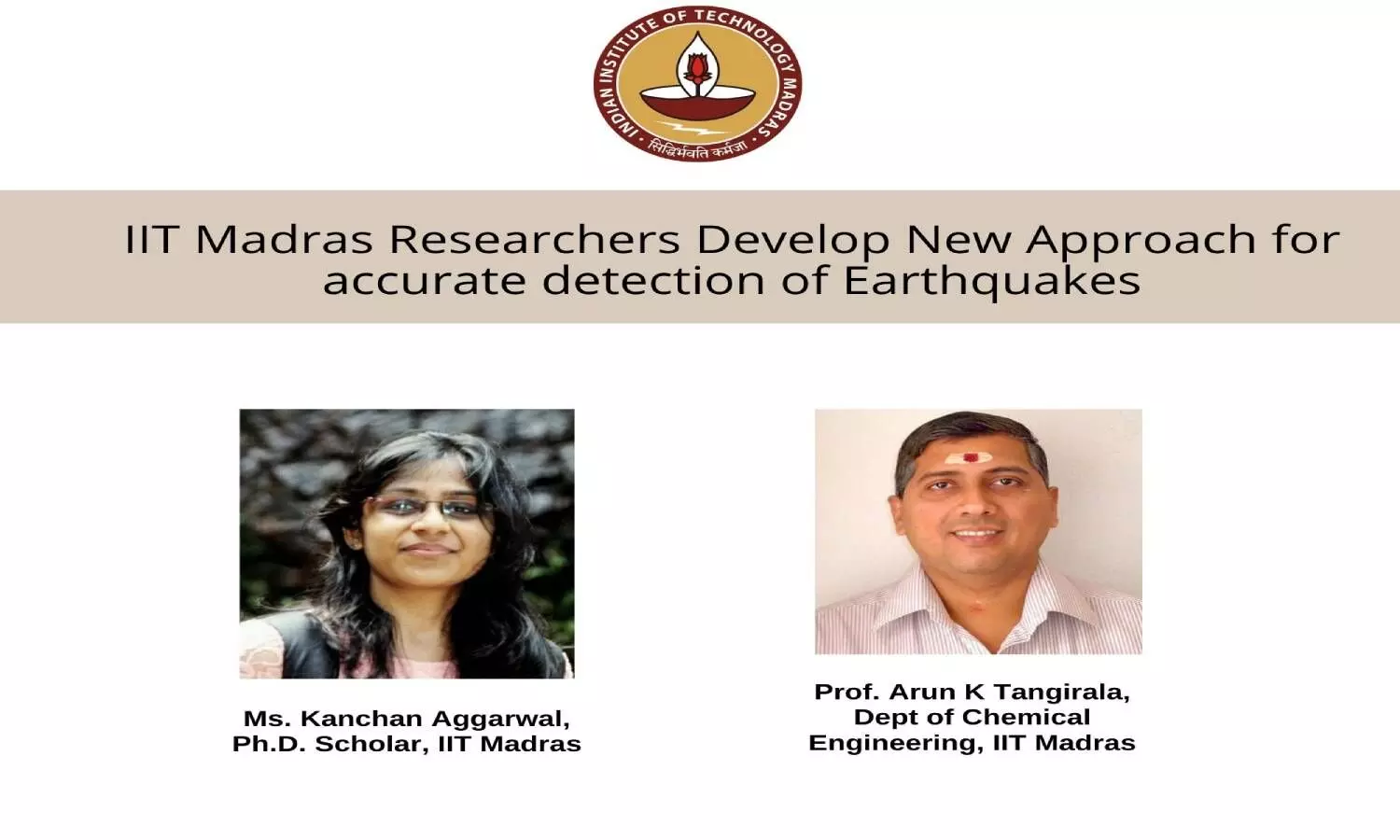IIT Madras researchers develop new approach for accurate detection of earthquakes
The proposed solution results in accurate detection and picking of the first waves in earthquake signals, which provide a small lead time and enable measures to save lives.
By Newsmeter Network
Chennai: Researchers at the Indian Institute of Technology (IIT) Madras have developed a new approach for accurate detection of earthquakes. The proposed solution results in accurate detection and picking of the first waves in earthquake signals, which provide a small lead time and enable measures to save lives.
An estimate of accurate time of arrival of non-destructive waves of earthquakes would not only help in developing a robust Early Warning System but also gives a lead time of approximately 30 seconds to two minutes (range may vary primarily depending on the distance of the epicentre location from the monitoring site or plant) till the destructive surface waves hit the ground.
This lead time, though appearing small, is sufficient to shut down nuclear reactors, transportation such as the metro and to park elevators in high rise buildings at the nearest floor, among numerous other measures that can save countless lives.
The research was undertaken by Kanchan Aggarwal, a PhD scholar at IIT Madras, under the guidance of Prof. Arun K Tangirala of the department of chemical engineering, IIT Madras. The findings of their research were published in the reputed peer-reviewed open access scientific journal 'PLOS ONE'.
Highlighting the practical applications of the research and how it can be taken to the field, Prof. Tangirala said, "The proposed framework is not necessarily limited to the detection of seismic events but is generic and can be used for fault detection and isolation in other domains as well. Furthermore, the framework can incorporate any predictive models including Machine Learning and Deep Learning models, which will reduce human intervention in detection."
Ms. Aggarwal added, "Information of P-wave arrival is crucial in determining other source parameters of the event such as magnitude, depth and epicentre location. Therefore, a solution to the P-wave detection problem that is robust, accurate and precise is essential in order to estimate the event details correctly and to reduce the damage caused by the earthquake or other triggered events."
This work proposes a novel real-time automatic P-wave detector and picker in the prediction framework with a time-frequency localization feature. Another positive offshoot of the proposed framework is that it facilitates P-wave reconstruction once it has been detected, an aspect that has not been explored earlier.